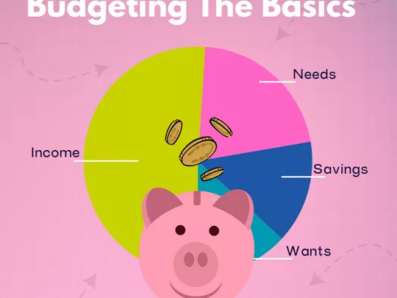Staying safe online might feel like the bottom of your to-do list. The ability young people have to open their phones or laptops and connect with the whole world instantly is a relatively new concept that the older generation is still navigating too. Though there is a lot of fun to be had and a whole scope of entertainment, it is important to remember how to stay safe too to protect your best interests.
Here are six tips to staying safe online:

Choosing Strong Passwords
You’ve probably heard this a hundred times, but strong passwords are going to be something you rely on. Avoid using the same one across all of your apps, and never write it down where someone will be able to find it. Try mixing up the format with a capital, lowercase, number, and special character as this is the most highly recommended secure phrase structure.
Not Sharing Personal Information
Sharing your personal information on the internet is not a safe thing to do. It can leave you vulnerable to people who might want to hurt you and this is never ideal. Keep things like your bank details (if you have them), your address, your birthday, and pictures of your house or yourself out of the spotlight. Even your best friend shouldn’t know your login details, this is just for you.
Thinking Ahead Before You Post Things
Anything that you put online can be saved instantly to someone else device. So even if you delete it fairly quickly (for example, if you post something you later regret), there is a chance that someone will have already saved and shared it without your knowledge or consent! It is difficult to do anything about this, so that is why you have to think twice before you post anything to any social media account. Especially with the new trend of disappearing photos, these can still be snapshotted and sent on.
Being Aware of Not Safe People
Sadly, there are people out there with bad intentions toward young people. This age is a vulnerable one in this context. You are more at risk and that is why it is important to know who your safe people are and who you can trust. Avoid getting into conversations with strangers online and never give them your personal information or any photos of yourself.
Staying Scam Aware
Scams can happen to anyone. Even if you think it never will, there are lots of them going around. It could be someone reaching out who manages to gain access to your social media accounts, or worse. Don’t accept messages from people you don’t know and always report anything that doesn’t feel right to you.
Combatting Cyberbullying
Cyberbullying is a modern day problem. It has not replaced traditional forms of bullying, but the online world has allowed for a whole new scope of cruel activities among peer groups. It is easy to go viral and with the ability to immediately access and send out widespread multi-media files, people are always finding new ways to hurt others. If you have been a victim of or complicit in cyberbullying, it is important to know the dangers and where to find help. Mistakes can be made right, but only if you decide to get on board.
Top Tips for Victims of cyberbullying
If you are in the line of fire for a bully online, there are a few things you can try out to make it easier or even get it to stop.
Report it to Your Caregiver
This could be a carer, teacher, or other trusted adult. They will help you take the best route forward whether that is going to the police or otherwise. It is important to be upfront about the content of the bullying, even if it is embarrassing because certain things will require more severe action than others.
Don’t Retaliate
If you respond with a similar post or activity, you are essentially painting yourself in the same light as your bully. Harassment and cruel words are still impactful even when dealt out in retaliation. Not responding does not mean you are weak, it means you are using your intelligence to deal with the problem more officially.

Try Not to Isolate Yourself
Bullying is never straightforward. There will be moments when you feel completely isolated, and that is valid. It can be so, so difficult to reach out to anyone for help and that is understandable. Where do you even start? You start with a small step in the right direction that works for you. If you struggle to use your voice, try typing a message or writing a letter to your adult to put the problem onto their agenda. It will absolutely become their top priority and sometimes, as a young person, you have to trust that this person will act with your best interests at the forefront of every decision.
Isolating yourself might lead to poor mental health, which is also difficult to navigate. There are hundreds of children being bullied on a regular basis, you are not alone in this. There are people who understand and people who can help. If you don’t feel ready to reach out to those close by, consider getting in touch with a charity that can give you advice.
Speak Up
Not being complicit in cyberbullying is as important as speaking up about it. If you know something is happening, but it isn’t being directly aimed at you, there are plenty of ways you can speak up to help without directly implicating yourself in the agenda. Of course, you don’t want to become a target for it, but letting something happen that could cause serious harm is also not okay. As a young person growing up in the ever-changing world, you do have a responsibility to differentiate between what’s right and what’s wrong. Stand up for your peers and speak out against bullying. It is the best way to make it stop and show your support.
Conclusion
Staying safe online is a tricky task in this new world filled with instant connections. While the internet is fun, there are hurdles to be navigated. Keep your wits about you, never ever share your personal details over social media or messaging services, and above all, stay true to yourself.
You may also like…
Handbooks & Guides?
Are handy handbooks are designed with you in mind, full of helpful information for both you and your foster family.
Independents
Are you about to be independent or have you already left? Find support and information here and remember to stay in touch.
Have your say
We are here for you, have your say on topics you want to read, give us your feedback or contribute to your foster parent’s review.
Kids of Carers
We offer help and support to birth children and young people whose parents are foster carers.





